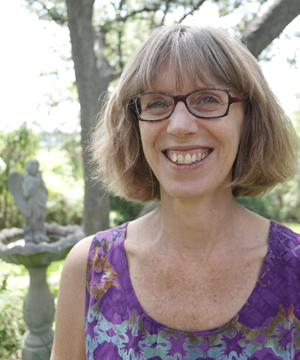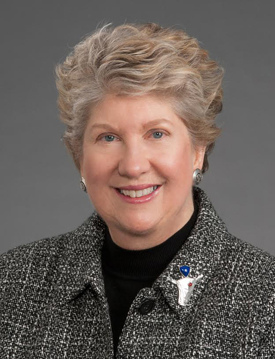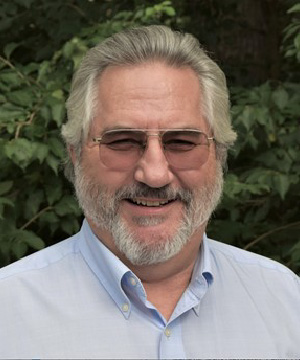- Who We Are
- Clinician Employment
- Publications
- Witness to Witness (W2W)
- El Premio Kugel & Zuroweste a la Justicia en la Salud
- Your Voice Matters: Photovoice Project
Kennith
Epidemiologist at the University of Iowa.
Jill
Cardiff University School of Medicine Psychiatry
Hugo
Hugo Lopez-Gatell, MD, MSc, PhD. is a Mexican physician, specialist in Internal Medicine, and doctor in Epidemiology. Since 2013, he is Director of Innovation on Infectious Disease Surveillance and Control at the Mexican National Institute of Public Health. He served from 2008 to 20012 as Director General of Epidemiology at Mexico's Ministry of Health. He worked several years as a clinician at the National Institute of Medical Sciences and Nutrition in Mexico City where he became Vice-Director of Clinical Research. Dr. Lopez-Gatell is also Assistant Professor at the School of Medicine of the National Autonomous University of Mexico.
Charlotte
Charlotte McCann is a Development and Grant Writing Specialist for MCN. Prior to joining MCN Charlotte led a capital campaign for the Friends of Libraries & Archives of Texas; worked for The Texas Observer as publisher and development director; and before that for the Human Rights Documentation Exchange/Central America Resource Center as director and research coordinator, documenting country conditions, persecution, and violence against women to support refugee claims for asylum or temporary protection. Charlotte is from New Hampshire and is an almost-naturalized Texan, having gone to grad school at the University of Texas and worked in Austin since then.
Sara
Sara A. Quandt, PhD, is Professor of Epidemiology and Prevention at Wake Forest School of Medicine. She is also Associate Director of the Center for Worker Health. She received her PhD in anthropology with a minor in human nutrition from Michigan State University. Quandt’s research focuses on health disparities with rural and minority communities, with a concentration on occupational health and safety of immigrant workers. She has directed NIH- and NIOSH-funded CBPR studies with farmworkers and poultry processing workers. She recently directed directs a study of women and children in farmworker families designed to understand determinants of early childhood obesity, she is an investigator for a study of child farmworkers’ health and safety, and she participates in the PACE study of pesticides and farmworkers, now in its 24th year. She is the author of over 400 journal articles and 31 book chapters. Quandt’s commitment to health research has been recognized by the National Rural Health Association (Outstanding Rural Health Research Award in 2007), the Washington Association of Practicing Anthropologists (2003 Praxis Award for excellence in applied anthropology), and the National Institute for Occupational Safety and Health (2006) National Occupational Research Agenda Innovative Research Award for Worker Health and Safety. She was awarded the Defender of Justice Award in 2017 by the North Carolina Justice Center.
Rubén
Rubén O. Martinez is the Director of the nationally renowned Julían Samora Research Institute at Michigan State University in East Lansing, Michigan. He is a nationally known scholar with expertise in the areas of higher education, race and ethnic relations, and diversity leadership. His research focuses on leadership and institutional change, education and ethnic minorities, youth development, and environmental justice. He is the editor of the Latinos in the United States book series with Michigan State University Press. He has co-authored the books A Brief History of Cristo Rey Church in Lansing, MI, Chicanos in Higher Education and Diversity Leadership in Higher Education. He also edited the volume Latinos in the Midwest and co-edited the books Occupational Health Disparities among Racial and Ethnic Minorities and Latino College Presidents: In their own Words, in which selected Latinos and Latinas share personal insights and experiences on their pathways to their presidencies at colleges and universities in the U.S. He has lectured widely across the country, including presentations at the Center for Advanced Study in Behavior Science at Stanford, Johns Hopkins University, the University of Colorado, University of Michigan, and at many professional conferences. He has served for many years on various university faculty senates and academic councils, and has made many far-reaching contributions to our nation’s higher education enterprise through his distinguished professional service as President of the Western Social Science Association, as member of the AASCU and ACE leadership institutes, as a consultant-evaluator with higher education accreditation associations, and as a member of the HACU-ETS Policy Fellowship Program. Rubén Martinez is widely recognized for his extensive scholarly achievements, his consulting work in higher education and community research projects, and his participation in high-profile projects sponsored by key entities such as the W. K. Kellogg Foundation, the Ford Foundation, the Pfizer Foundation, the Anne E. Casey Foundation, and the Hispanic Association of Colleges and Universities. He is one of our nation’s leading sociologists of higher education, who is not only a prolific, creative, and influential scholar but also a deep and sophisticated thinker on the most vexing issues facing our communities and institutions of higher learning, including the issues of culture, identity, social justice, excellence, accountability, diversity, and leadership.
Mary
Mary I. O'Connor is an anthropologist who has been conducting research with indigenous Mixtec people in the US and Mexico since 2001. She is currently planning a research project on access to health care by Mixtec migrants in California.
Luz Amparo
Lorena
Dr. Lorena M. Estrada-Martínez earned her doctorate in health behavior and health education at the University of Michigan, where she also holds a Master of Public Health. She joined the George Warren Brown School of Social Work in August 2011 as an assistant professor of public health.
Before coming to Brown, Dr. Estrada-Martínez was the Paul B. Cornely Post-doctoral Research Scholar at University of Michigan’s Center for Research on Ethnicity Culture and Health. During her fellowship, she conducted research on the social determinants of health and Latino health disparities. During this time she was also a research assistant with the University of Michigan’s Prevention Research Center. In this role she analyzed data from the Flint Adolescent Study, looking at violent and non-violent delinquency among African American youths transitioning into adulthood. In addition, she was a Fellow in the Emerging Scholars Interdisciplinary Network Summer Fellowship Program in Applied Multi-Ethnic Research at ICPSR, University of Michigan, Ann Arbor, MI. Other research interests included the health and well-being of Latinos and Afro-Caribbean populations and how the variations in immigration processes across them impact mental health and behavioral outcomes.
Over the course of her professional career, she has taught courses on research methodology, theories of health promotion, youth violence and injury prevention, Latino and immigrant health, racial and ethnic health disparities, women’s health, and adolescent health behaviors. Most recently, Dr. Estrada-Martínez was elected as a permanent member of the Brown School of Social Work’s newly formed Diversity Committee. She also serves as a co-chair on the executive board of Washington University’s Latino Link, founder and coordinator of St. Louis Latino Studies Workgroup, and a member of Violence Prevention Specialization Subcommittee, Children, Youth, and Families Committee and the Law, Culture, and Identity Initiative Advisory Board.
Dr. Estrada-Martínez is interested in understanding and reducing health disparities, particularly related to the mental health and risk behavioral outcomes of Latino and immigrant youth in the US. She takes a transdisciplinary approach that encompasses public health, sociology, psychology, anthropology, education, public policy, demography, law, and medicine. Her current projects examine neighborhood and family environments’ as contexts for risk and protection, and intra- and inter-ethnic disparities in youth violence, risky sexual behaviors, academic achievement, and substance abuse.
Katherine
Roberta
Medical Family Therapy PhD student at East Carolina University
Rene
Dr. Rosenbaum, PHD economics, 1985, Notre Dame, is an Assoc Professor in community and economic development in the Department of Community Agriculture, Recreation and Resource Studies (CARRS) at Michigan State University. Dr Rosenbaum’s research interests are in fields of community economic development, community-based studies, farm labor child care issues, farm labor markets, farm worker health, and Latino and other minority economic issues.
Maria de Jesus
Maria de Jesus Diaz-Perez is the director of public reporting at the Center for Improving Value in Health Care (CIVHC). Maria has a doctoral degree in Health and Behavioral Sciences from the University of Colorado and a Masters in Social Psychology from the National Autonomous University in Mexico City. Maria´s professional career has included research, program design, management and evaluation with the overall goal of increasing access to equitable and high-quality primary health care for socioeconomically disadvantaged populations, particularly immigrants. Maria is a fellow at the Robert Wood Johnson Foundation Interdisciplinary Research Leaders Program.
Merle
Manuela











